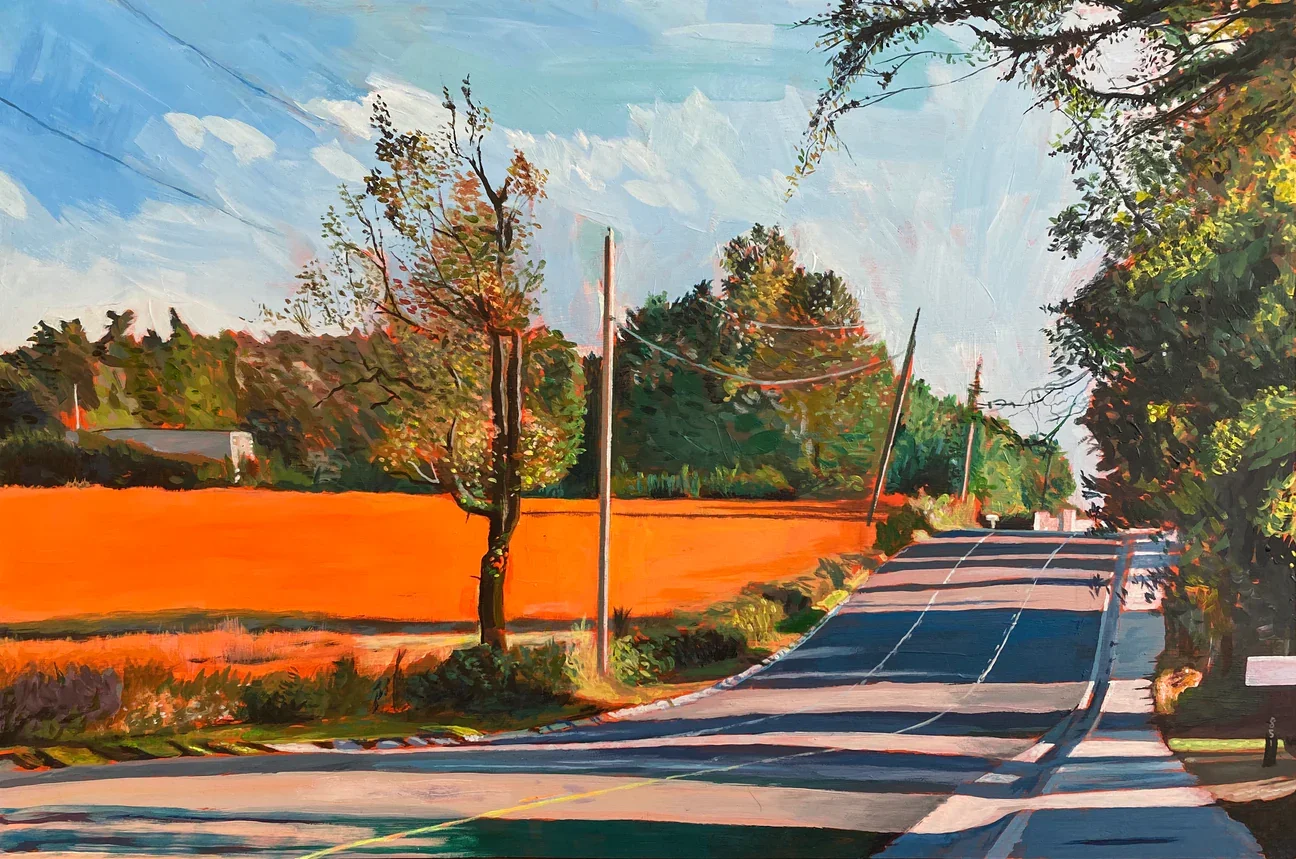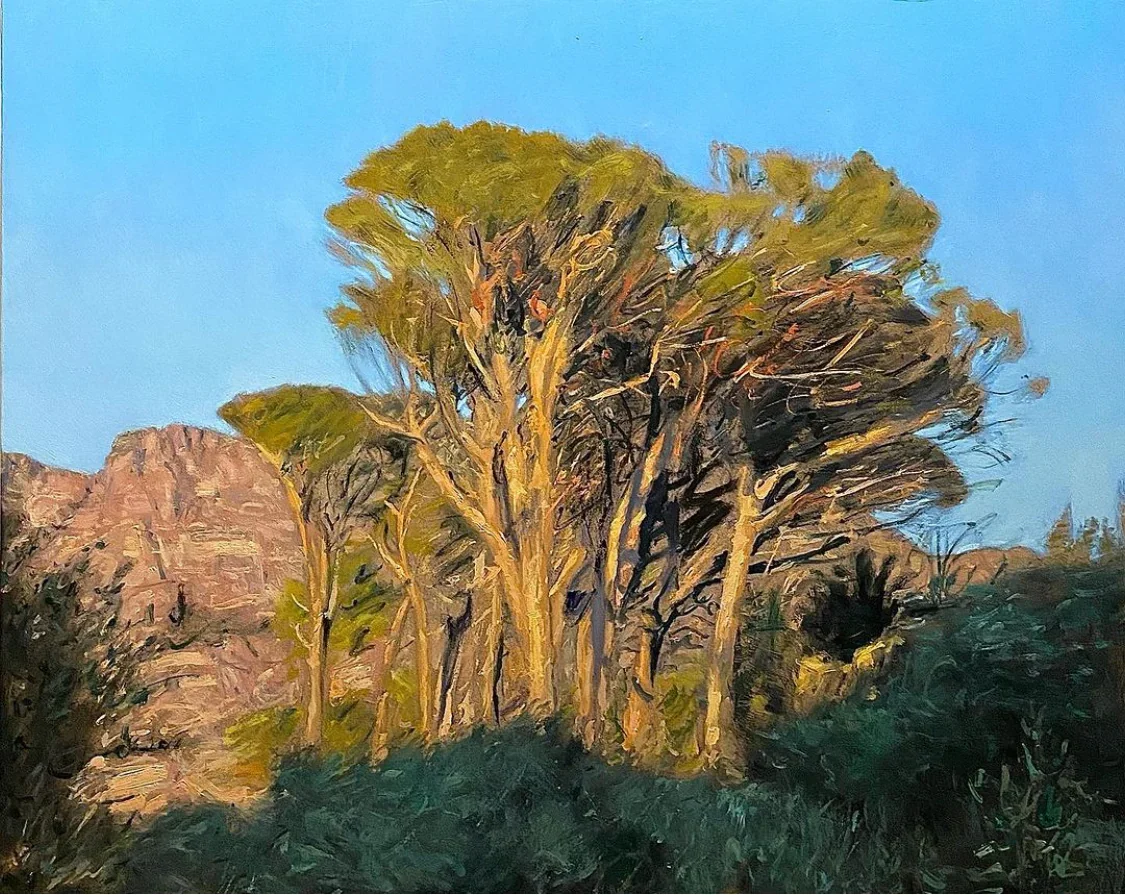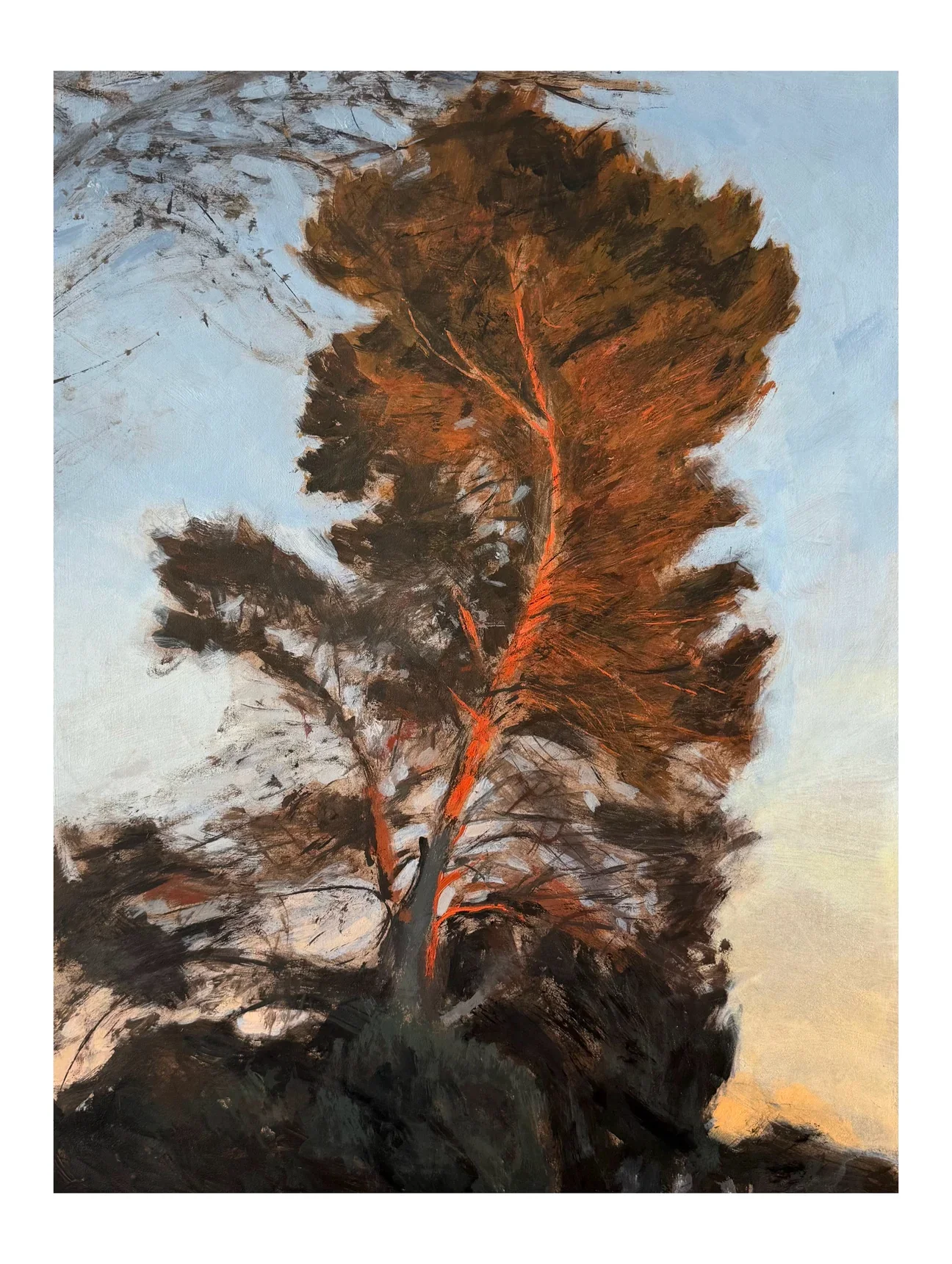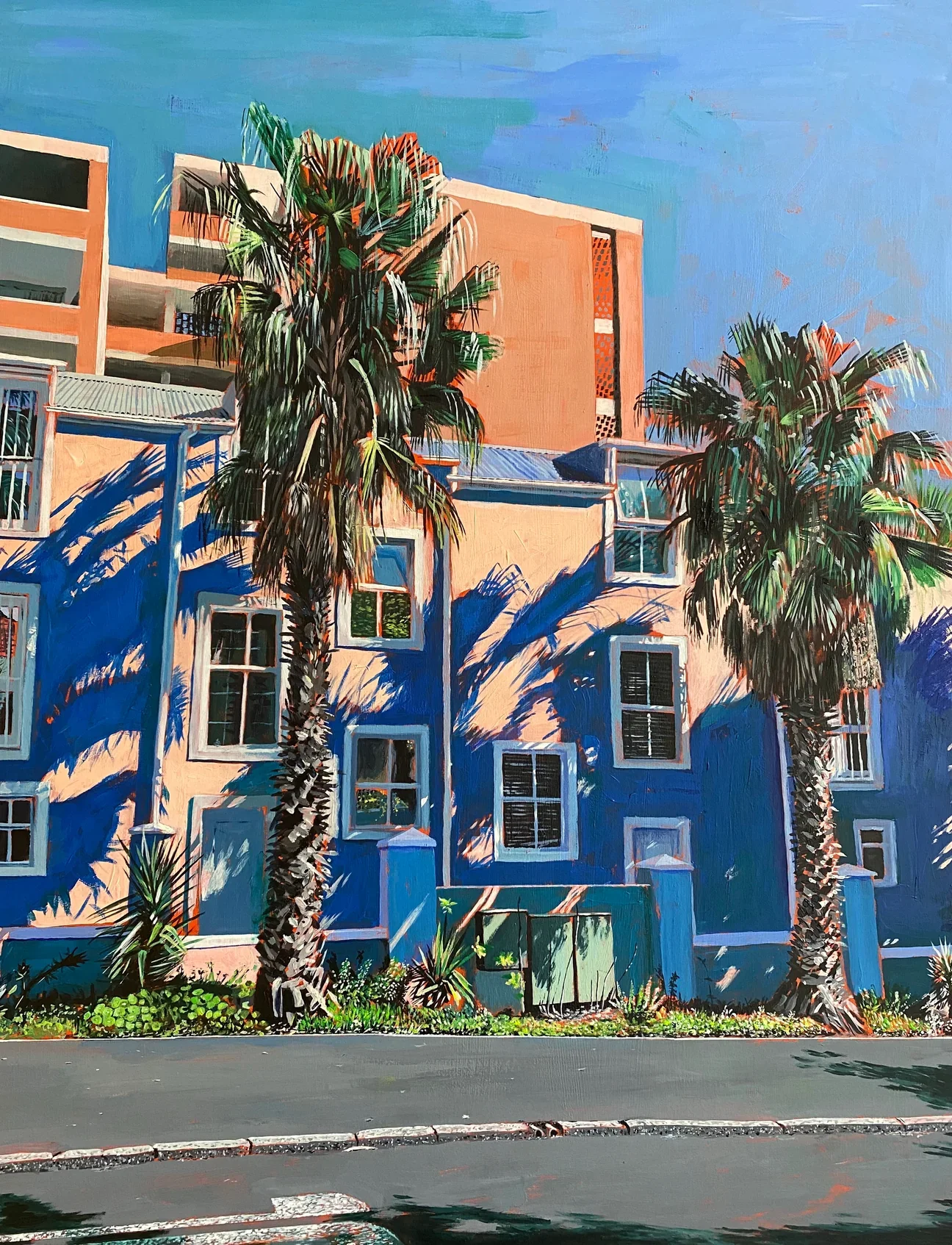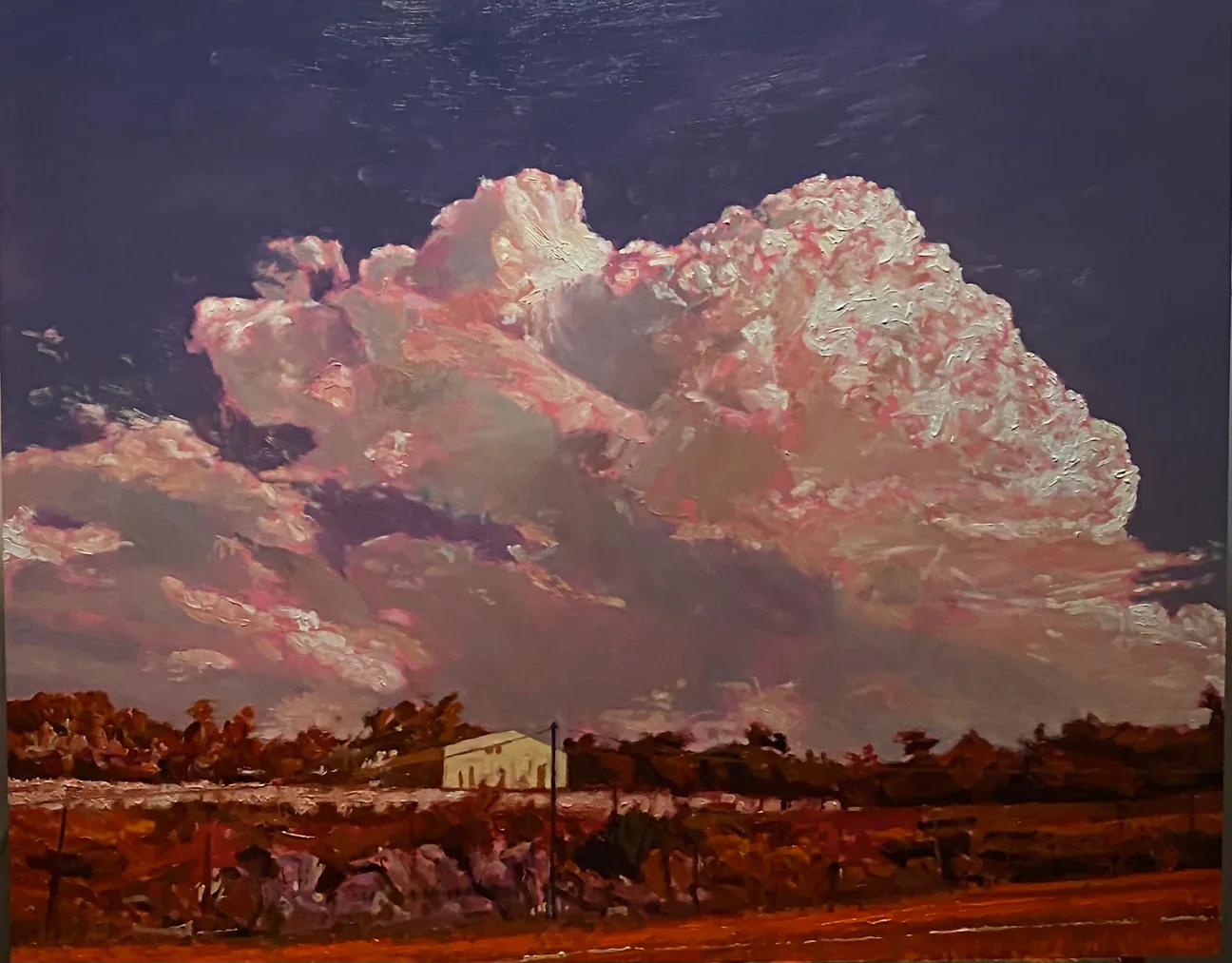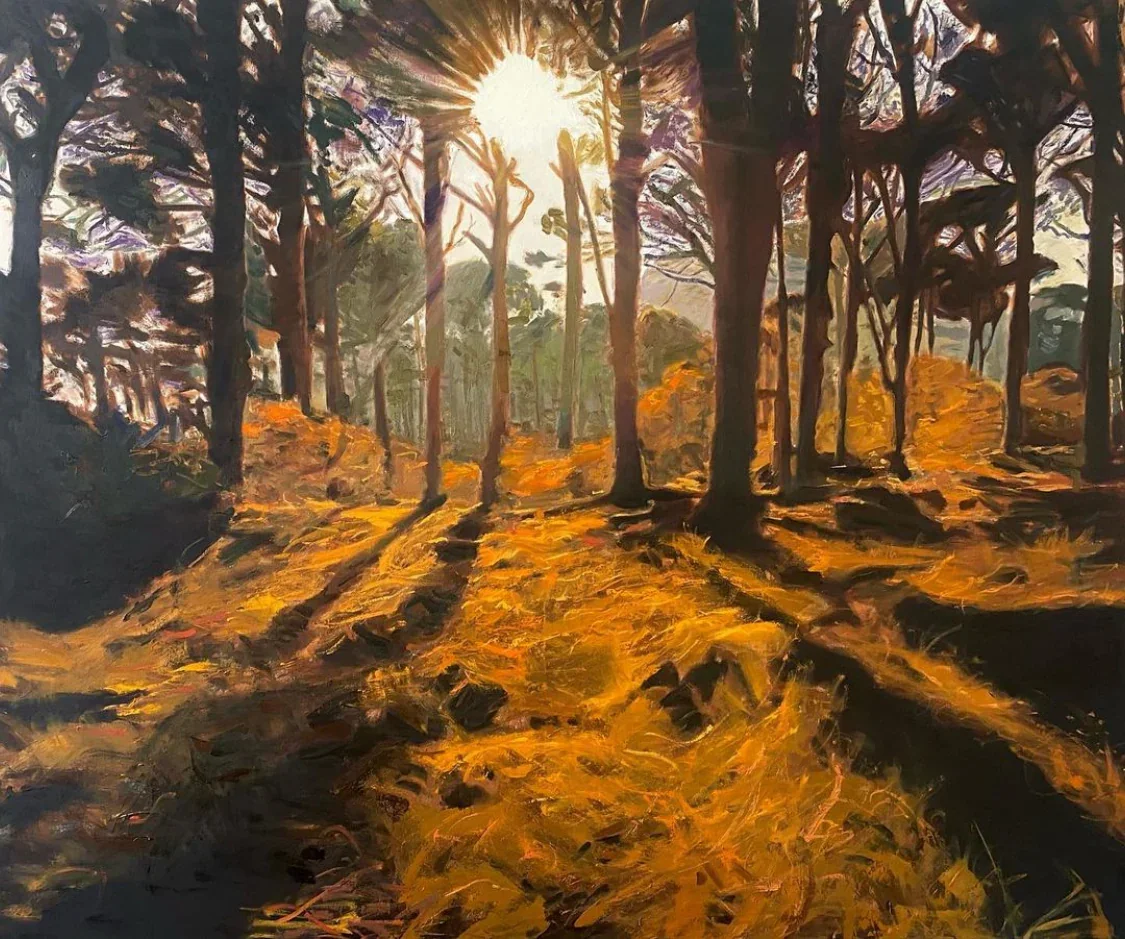ARTIST INTERVIEW: LUKE WILLIAMS
Luke Williams
In the early 2000s, you studied Illustration at university. However, despite taking the degree in illustration, you decided to pursue a career as an English teacher. Why was this? Why do you think it took almost two decades to come back to art?
I left the illustration world for a number of reasons but mainly because I found the art of illustrative work extremely hard at university. I never really found my place with illustration, whilst watching other flourish around me and I was happy to take a job in something completely different whilst still searching for something that hit my heart at that point in my life.
Sun Salutations
After 6 years of teaching, your career took a U-turn after becoming fascinated with food preservation and microbiology; so much so you created your own business making and selling cheese! Do you think that this was your inner creative starting to form? Do you think you've always had an urge to be creative?
I guess the best things that we naturally latch onto in life can often become the most important. After reading a book called The Last Food of England (focussing on preservation before refrigeration), I became infatuated with the idea that I could make and cure my own salamis. It hadn't really crossed my mind that they were essentially raw and it was the live bacteria breaking down the proteins that not only made the raw meat edible but also taste delicious. I bought a small, cheap wine fridge and started experimenting. After a few horrendous attempts, I started making some very tasty produce and it was here where my love for the latin names for bacteria came about. My mom and dad, seeing that I was geeking out on curing and fermenting, bought me a cheese making kit for Christmas and then a whole other world of bacteria, yeast and mould appeared in my life! Although I love the taste of cured foods it was really the geekiness of knowing what was happening microbiologically that stoked the passion. The tasty end product was a massive bonus.
Breda Street
During Covid lockdown, you re-discovered your passion for fine art when you purchased an Ipad and started illustrating. When did you decide that you wanted to turn this passion into a career?
My grandfather, Harold, was a landscape painter. During Covid the outdoors became more precious than anything. Being in amongst nature is truly the most honest, healing, loving, wonderful place to spend time. Having grown up in London, I know what it's like to live in a big city and I'm immensely lucky to be able to walk my dog on the mountain almost every day (or he walks me depending on how you look at it). When I go back to the UK I always make a beeline for friends on farms, countryside and parks. I think I might suffer from post traumatic restaurant owners syndrome and deeply need the outdoors to settle me.
Your paintings capture trees moving against the wind. Why are trees the main subject in the majority of your work? How are you able to capture the movement of them so effortlessly?
I don't really think too much about the why's and the what's to be honest. If something catches my eye and I think it's beautiful I go with it. I follow so many artists who are incredible at painting trees that it spurs me on to continue in my attempt to create an awe-inspiring image. Many misses make many more hits in the long run and the more I paint the more beautiful things I see. I'm a sucker for golden hour light as it seems to not only sing with the gorgeous colours that come with it but time slows down a touch during these morning and evening hours. You don't notice golden hour if you are commuting in traffic or on the underground, so having a job that can afford me to delve deeply into those moments in the day is as lucky as it comes really. I'm annoyingly attuned to clouds, their formations and how their shapes can look in a painting that I spend far too much time squinting and imagining scenes as paintings. The wrinkles on my face are multiplying at lightning speed with me screwing up my face the whole time
Clouds Over Midrand
Thinking about your last piece, describe your process from start to finish.
My last painting was a piece called Copse 3. I had painted this collection of trees before but I get to see it almost every day and as it is up above me on the mountain, it reaches out for the first rays of light hitting its 'armpits' as it reaching up to the sky for its morning stretch. I recently started painting the trees in before the sky and I get a rough idea of what I want to paint and where I want everything to lie. I have also recently moved back to acrylics after years of oils, so I knew that I wanted to emphasise the scratchiness of the acrylic paint with the scratchiness of the branches. It's actually been really lovely moving back to acrylics as I'm able to mix fluorescent paints into my palette which can be fun to work with. I knew that I wanted the trunks and branches that were catching the light to be the draw in for the eye so I tried to keep the leafy areas of the tree pretty free so that you saw the bright orange trunks as soon as you look at the painting. I'm never totally at ease with any painting but I'm also always happy to call one done and move onto the next. I've felt a bit of a fraud at times with so many ridiculously talented people out there but I'm starting to find comfort in where I am at and, just like with music where the most touching heartfelt piece can come from a simple rhythm or baseline, paintings are no different. A brushstroke, like a note, can be put down in countless ways, all interpreted differently. It's always a joy to paint and I don't suffer from blank canvas syndrome so that spurs me on massively.
What is your favourite part of the painting process? Which part do you find most challenging?
I enjoy the struggle where a painting is looking pretty shambolic but having painted hundreds of paintings over the past few years I now have the confidence to work through that and know that that part is as important as the cherry on the cake highlights at the end of the painting. The part I do struggle with is wanting more time in my life to paint plein air (outdoors). With three kids at school and doing school runs it doesn't allow for much time to get my easel up and ready for when the light starts to lift and I adore being with my children after school cooking them dinner, so the evenings are out of the question. I still love painting in my studio and I'm fortunate to do something that fills me with joy, but in an ideal world the day is 30 hours long and I have time to get out there.
Shadows and Shine
Describe the impact re-discovering your love for art 5 years ago has had on your life. How does painting make you feel?
It has completely changed everything about my life. Owning a restaurant, however much I loved it and people came to my restaurant to ask me anything about the cheese world, it also made me ill in the end and things had to change. The more I paint, the more paintings I see in the world and that has a tremendous amount of calming to the soul. It's extraordinarily lucky to be obsessed about your work.
Copse II
How do you picture your work evolving in the future?
To be honest I hope to be doing what I'm doing with a little more outdoors thrown in and my work is a hundred times better. I have recently been getting a bit more worldwide recognition and it would be a lie to say that that doesn't matter and I'd be slaving away if nobody liked my art. That simply isn't true. I'd love to be able to have time to paint with groups of people around me and I think that that will come in time but for now it is the solitary silence of my studio that beckons. I think it's safe to say that everybody would like to be a bit more successful, whichever way you see success. So long as I adore what I'm doing, I think my work should evolve in many ways that are impossible to completely envisage.
Why do you think art is important in society?
Art is everywhere, from the comic timing of a joke to typography, storytelling, music, squelching mud in your fingers, dance, how to cover up a receding hairline and more. It is important that there is every type of music because it delves much deeper than words can express. I don't necessarily want people to explain why they feel deeply about a piece of my work. If it hits the feels then it's doing what is needed. The more us humans get pulled into the low hanging fruit of AI and lose connection to the outside world with social media, the more we need art. The two are not mutually exclusive and I'm not against the idea of learning about the benefits of AI (and I'm already knee deep in the world of social media) but the art I love is one that connects us to the true and deeply life affirming ways of nature. Our cups are full when we create and to work in amongst the natural world - a place that people will turn to when they are at their lowest and struggling the most - is wonderful. We have always been and always will be creative beings


